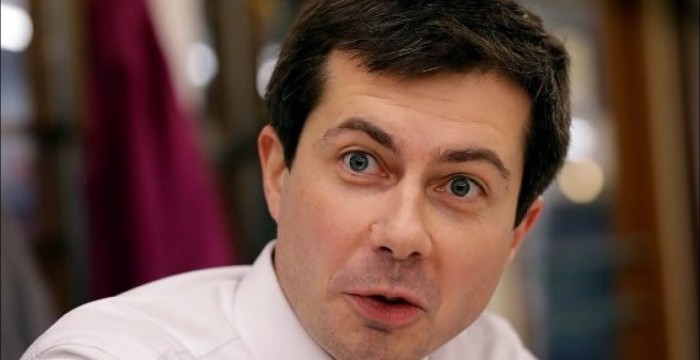For FREE help finding a Medicare plan,
Click here or call 1-800-729-9590.
Support The Show On Patreon:
Here's Our Amazon Link:
Follow Kyle on Twitter:
Like the show on Facebook:
Clip from The Kyle Kulinski Show, which airs live on Blog Talk Radio and Secular Talk Radio Monday – Friday 11:00 AM – 12:30 PM Eastern time zone.
Listen to the Live Show or On Demand archive at:
Check out our website – and become a member – at:
How The Left Can Reframe The Medicare For All Debate







Tulsi did great at the CNN townhall. The rest was a snooze fest…
+Dak Kerrins … did I say that?
Did you listen to what she said there?
Fishlove- That is not my concern, I said that I don’t want another compromiser and chief, we tried that with Obama.
Damian Cairns why do you think she’ll compromise? She’s much more ruthless than him.
Tulsi dodged the question about socialism and the question about ending the war on drugs and those kinda rubbed me the wrong way. She was my #2 pick but she’s dropped, it also doesn’t help that she has a past of not respecting the LGBT community. It was so refreshing to hear Pete come on after her with possibly the most pro-LGBT policy out of everyone running. Maybe I’m biased because I am a member of that community, but I felt so proud seeing him on that stage.
+Papillon659 I question this comment.
Donate to Bernie 2020 NOW
+Andrew Anson what she sitting at for individual donors, I know Yang just passed his criteria to enter the debates
+Devin Heida I’m not sure, last I knew she wasn’t there yet, I’ll have to check… Regardless, shes in need of support, and Donations.
+Andrew Anson no doubt, any bit will help, I’d like to see all progressive candidates to the debate stage and voice their platforms and policies amongst one another and why they view one is superior to the other. After the debates, you who donate (can’t, I’m Canadian) can decide who’s the beat candidate, but at least all will have the chance to speak.
You can make it a double bonus too! I’m buying an awesome t shirt from his site today for 27 bucks 😀
Donate to Yang
Pete is also for using sanctions to coerce regime change in Venezuela.
+Mr_RGP See ya, sucker.
+BrieIhateMenLarson Watch his cnn town hall
+poofendorf that’s what I thought.
Awe, that’s disappointing!
He has a good point on Venezuela, he jus support free elections no the second Irak war.
He is the mayor of my hometown and has truly revitalized the city. I am excited to see him running and have donated to him so he can be on the debate stage.
Fax
“bUt HoUsE u GoNnA pAy FeR iT?” The first line of defense from the anti-healthcare crowd.
+Robert Jenkins the fed has sat on top of two of the most dangerous asset bubbles in history during the last 15 years and still cant seem to do what everyone elsenin thebroom the knows they need to. How mich confidence can you possibly have in the us govt to manage an extremely more complex system of being given authority to spend to infinity but constatntly balance that with taxes to keep the currency under control? ( the USD is also the reserve currency of the world, so there is the issue that practically, the simple suggestion that the USA adopted a monetary policy like this would destabilize the currency just due to the news)
Timefliesbye By cutting our 4 trillion dollar military budget
How is it paid for? Exactly the same way that all spending is done, at the federal level. Congressional appropriation and the president’s signature.
To be fair, cost breakdown should be a component of the debate for ANY topic, not just healthcare. I rarely see this happen.
Steve Ratner, The Morning Joe interviewer, is a Wall St. tool who thinks he’s cool because he’s a big Springsteen fan. Chris Christie without the high cholesterol.
Australia has a private doctor, public funding. Works pretty good.
But Australia is like Venezuela
pakpala1
Australia also has like 50 citizens.
You dumb fucks have to stop using other countries as arguments.
And with a coal-crazy conservative government at that. They know what’d happen to them if they fucked with it too much.
+J P Japan has 126 million. The EU as a whole has 500 million citizens.
Agreed. You have a crazy question for Tulsi about “What about the jobs lost from the health insurance companies?” Which reminds me of the wolf blitzer question, “What about the jobs lost from the defense contractors?” Are you kidding me? These jobs are designed to maximize profit by killing people! To either deny coverage, or extract as much money from individuals as possible, in the case of HMO’s, or to design weapons to literally kill people, from the defense contractors! The media and the plants they pose these questions are totally propaganda, speaking for the corporations and the rich!
I suppose we could always tell those people who lose their jobs to learn code…
Pete just came out and said he supported Obama’s sanctions on Chelsea manning. And criticizes the Edward snowden leakes
Marshal Here you go ! https://www.cbsnews.com/news/2020-candidate-pete-buttigieg-troubled-by-clemency-for-chelsea-manning/
Zoey Paige They were the two best candidates from the start. (And still are) I can’t believe people are asking for a Bernie/butteigeg ticket just from seeing his town-hall
Oof, that’s not good. Thanks.
+dipojones Yeah.. and pretty young in his career (I assume) to be conforming.
Tulsi + Yang, guys… Bernie is just more 70s-style class warfare rhetoric. Feels great to spout out, but it doesn’t get you places. You want a president who’s wearing a pink vagina hat for the next four years?
he wrote it in high school in 2000: Bernie Sanders
By Peter Buttigieg
St. Joseph’s High School
South Bend, Indiana
In this new century, there are a daunting number of important issues which are to be confronted if we are to progress as a nation. Each must be addressed thoroughly and energetically. But in order to accomplish the collective goals of our society, we must first address how we deal with issues. We must re-examine the psychological and political climate of American politics. As it stands, our future is at risk due to a troubling tendency towards cynicism among voters and elected officials. The successful resolution of every issue before us depends on the fundamental question of public integrity.
A new attitude has swept American politics. Candidates have discovered that is easier to be elected by not offending anyone rather than by impressing the voters. Politicians are rushing for the center, careful not to stick their necks out on issues. Most Democrats shy away from the word “liberal” like a horrid accusation. Republican presidential hopeful George W. Bush uses the centrist rhetoric of “compassionate conservatism” while Pat Buchanan, once considered a mainstream Republican, has been driven off the ideological edge of the G.O.P. Just as film producers shoot different endings and let test audiences select the most pleasing, some candidates run “test platforms” through sample groups to see which is most likely to win before they speak out on major issue. This disturbing trend reveals cynicism, a double-sided problem, which is perhaps, the greatest threat to the continued success of the American political system.
Cynical candidates have developed an ability to outgrow their convictions in order to win power. Cynical citizens have given up on the election process, going to the polls at one of the lowest rates in the democratic world. Such an atmosphere inevitably distances our society from its leadership and is thus a fundamental threat to the principles of democracy. It also calls into question what motivates a run for office – in many cases, apparently, only the desire to occupy it. Fortunately for the political process, there remain a number of committed individuals who are steadfast enough in their beliefs to run for office to benefit their fellow Americans. Such people are willing to eschew political and personal comfort and convenience because they believe they can make a difference. One outstanding and inspiring example of such integrity is the country’s only Independent Congressman, Vermont’s Bernie Sanders.
Sanders’ courage is evident in the first word he uses to describe himself: “Socialist”. In a country where Communism is still the dirtiest of ideological dirty words, in a climate where even liberalism is considered radical, and Socialism is immediately and perhaps willfully confused with Communism, a politician dares to call himself a socialist? He does indeed. Here is someone who has “looked into his own soul” and expressed an ideology, the endorsement of which, in today’s political atmosphere, is analogous to a self-inflicted gunshot wound. Even though he has lived through a time in which an admitted socialist could not act in a film, let alone hold a Congressional seat, Sanders is not afraid to be candid about his political persuasion.
After numerous political defeats in his traditionally Republican state, Sanders won the office of mayor of Burlington by ten votes. A successful and popular mayor, he went on to win Vermont’s one Congressional seat in 1990. Since then, he has taken many courageous and politically risky stands on issues facing the nation. He has come under fire from various conservative religious groups because of his support for same-sex marriages. His stance on gun control led to NRA-organized media campaigns against him. Sanders has also shown creativity in organizing drug-shopping trips to Canada for senior citizens to call attention to inflated drug prices in the United States.
While impressive, Sanders’ candor does not itself represent political courage. The nation is teeming with outspoken radicals in one form or another. Most are sooner called crazy than courageous. It is the second half of Sanders’ political role that puts the first half into perspective: he is a powerful force for conciliation and bi-partisanship on Capitol Hill. In Profiles in Courage, John F. Kennedy wrote that “we should not be too hasty in condemning all compromise as bad morals. For politics and legislation are not matters for inflexible principles or unattainable ideals.” It may seem strange that someone so steadfast in his principles has a reputation as a peacemaker between divided forces in Washington, but this is what makes Sanders truly remarkable. He represents President Kennedy’s ideal of “compromises of issues, not of principles.”
Sanders has used his unique position as the lone Independent Congressman to help Democrats and Republicans force hearings on the internal structure of the International Monetary Fund, which he sees as excessively powerful and unaccountable. He also succeeded in quietly persuading reluctant Republicans and President Clinton to ban the import of products made by under-age workers. Sanders drew some criticism from the far left when he chose to grudgingly endorse President Clinton’s bids for election and re-election as President. Sanders explained that while he disagreed with many of Clinton’s centrist policies, he felt that he was the best option for America’s working class.
Sanders’ positions on many difficult issues are commendable, but his real impact has been as a reaction to the cynical climate which threatens the effectiveness of the democratic system. His energy, candor, conviction, and ability to bring people together stand against the current of opportunism, moral compromise, and partisanship which runs rampant on the American political scene. He and few others like him have the power to restore principle and leadership in Congress and to win back the faith of a voting public weary and wary of political opportunism. Above all, I commend Bernie Sanders for giving me an answer to those who say American young people see politics as a cesspool of corruption, beyond redemption. I have heard that no sensible young person today would want to give his or her life to public service. I can personally assure you this is untrue.
Bibliography
Dunne, Nancy. “IMF Chief Faces a Grilling from Lone Independent Warrior of Capitol Hill.” Financial Times. 21 April 1998.
Greenhouse, Steven. “Measure to Ban Import Items Made By Children in Bondage.” New York Times. 1 October 1997.
“Homepage for Congressman Bernie Sanders.” http://www.house.gov/bernie (7 January, 2000).
Kennedy, John F. Profiles in Courage. New York: Harper & Brothers, 1956.
Nichols, John. “Go Knock on Some Doors: Bernie Sanders Sounds Off.” The Progressive. May 1996.
https://www.jfklibrary.org/learn/education/profile-in-courage-essay-contest/past-winning-essays/2000-winning-essay-by-peter-buttigieg
He wrote that in High School? Damn, he was a smart kid.
+Henk – There’s a reason he’s a Rhodes Scholar
+Erik S I don’t even know what that is lol
Wow, amazing! Thanks for sharing this!
But Kyle,
VENEZUELA!
BEN’S WIFE!
+dipojones in Russia…rats eat you
Vevuzela is coming to force your wife into medical slavery.
Bens wife doesn’t exist change my mind.
+BrieIhateMenLarson rats don’t taste bad! Did you know monsanto poisons our food with glysophate? Capitalism means eating poisonous food that causes cancer?!?!
Just call it pre-paid healthcare.
Saying it’s free creates too many hacky arguments that others will fall for. Explaining why it’s pre-paid and that you save money gets to the point quicker.
or we can point out that it will save $201 billion / year which could go to tax cuts, because republicans jizz their pants when they hear the words “tax cuts”
Pre-suck my genital situation.
Venezuelan economy has a 70-80% private sector
B-b-but SOCIALISM!
Ha! Got ya
If you told a republic this figure they’d just say “that’s why you need 100% capitalism”
At first I thought Pete Bootyjudge was one of Kyle’s nicknames, but I realized that it’s actually prononounced like that.
LOL! I thought the same thing until I read this.
Pete ButtJigg(le)
But it’s not.
Boot-edge-edge
Yeah…I was like “this is a Secular Talk nickname waiting for a candidate”.
You wanna reframe the medicare for all debate? It goes like this:
Person 1) We want medicare for all.
Person 2) Okay, how you gonna pay for it, dum dum?
Person 1) Medicare for all is cheaper than the current system.
Kyle he supports the German system. Private, non-profit health insurance companies subsidized heavily by the state and regulated mercilessly.
Joseph Sakata – Private doctors, public funding.
One form of single payer that can be found in other modern countries.
Just replace Germany w/ another country that shares this form of single payer.
I think Australia has a somewhat similar system as well. The government heavily subsidises private health insurance companies, whether they are for-profit or non-profit. The private health insurance is for private hospitals and clinics though. There is a public health care system, which is free of charge to use for all citizens and some permanent residents. My experience with the public health care system here has been very good. Many private family doctors also don’t charge clients for consultations either, so they bill the government.
Works great for us
Well, cut “non-profit” and “mercilessly” and you got it right. We have our neoliberals here too and they are not sitting on their hands when they see the opportunity too demontage our social systems. The privatization of our hospitals for example caused tremendous (learned that word from Donnie :)) damage, by creating a whole new market in optimizing profits from insurance pays, not always to the benefit of the patients. And the hospital companies keep the nurses dangerously understaffed and overworked to skimp on salaries.
It can be a really good system, but germany is right now more of a warning example on how it can be messed with by corporatists.
And of course CNN gave the booty guy a tongue bath, and smeared Tulsi in every way possible.
Literally most of the candidates running, I only know their nicknames, thanks Kyle.
Overall Bootyjudge is not too shabby and I’d probably vote for him, but he does have some concerning ideas, like his approach on Venezuela. I’d place him below Elizabeth Warren on who to choose for president. 1. Bernie 2. Tulsi 3. Yang 4. Warren 5. Bootyjudge
My exact lineup
Marshal – Ranked choice voting lineup!
Buttigieg is against intervention in Venezula, though he’s mentioned using “diplomatic channels” and “targeted” sanctions, to the extent that’s even possible (and he explicitly stated that it may not be). He wants to end perpetual war. Buttigieg is not Bernie, but he’s a solid ally and I hope he makes it to the debate stage.
1. Yang 2. Warren & Tulsi 3. Bootyjudge 4. Bernie. I’m concerned that a Bernie presidency will just devolve into a food-fight with the Republicans, and that we won’t get anything done. (Not to mention Yang has better ideas to start with.)
+CarJaune Quite interested how you assume in a Bernie vs Yang lineup that the policy rankings are higher for Yang than Bernie.
Care to elaborate which policy specifics?
Pete Buttigieg’s name really does sound like a porn stars name.
“Hey there ladies, I’m here to chew bubblegum and judge booties, and I’m all outta bubblegum….”
He judges the booty.